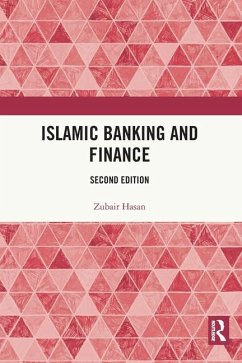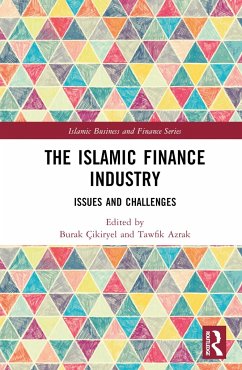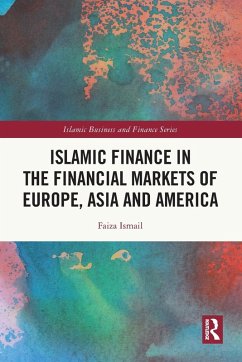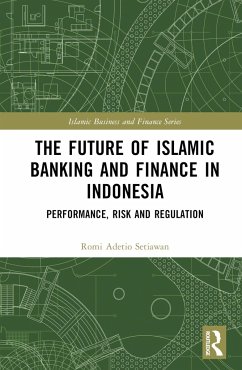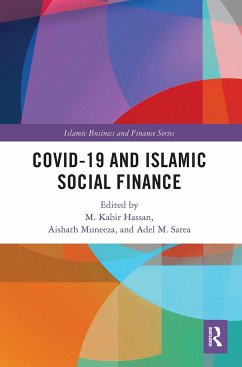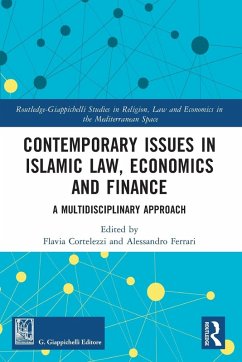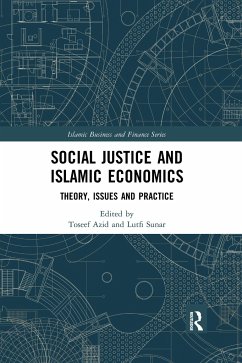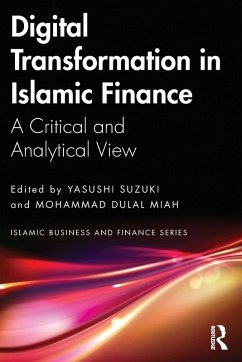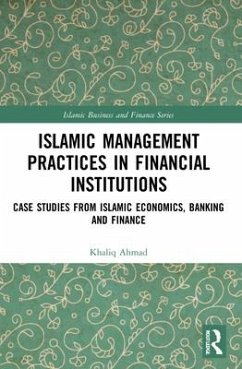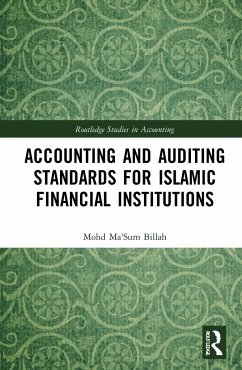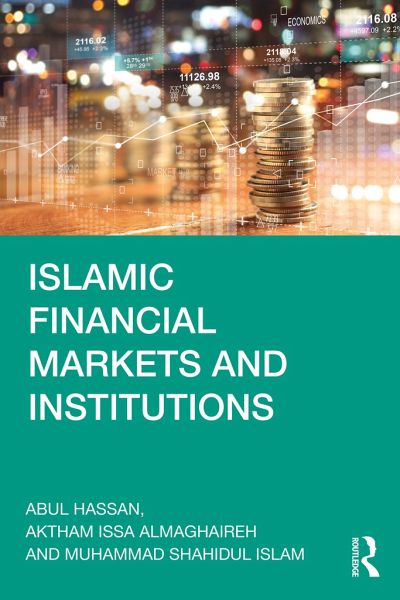
Islamic Financial Markets and Institutions
Versandkostenfrei!
Versandfertig in 6-10 Tagen
62,99 €
inkl. MwSt.
Weitere Ausgaben:

PAYBACK Punkte
31 °P sammeln!
The rapid pace of progress in the Islamic financial market and investment space, coupled with the COVID-19 pandemic and its aftermath and recovery, has provided the necessary challenges to build a strong case for Islamic investment. This timely and unique book focuses on the foundations of Islamic financial markets and institutions in the context of various products, their market application, Islamic asset management, and regulation.The authors provide a thorough overview of Islamic financing instruments and markets, such as Islamic debt and equity markets, through shares and the stock market,...
The rapid pace of progress in the Islamic financial market and investment space, coupled with the COVID-19 pandemic and its aftermath and recovery, has provided the necessary challenges to build a strong case for Islamic investment. This timely and unique book focuses on the foundations of Islamic financial markets and institutions in the context of various products, their market application, Islamic asset management, and regulation.
The authors provide a thorough overview of Islamic financing instruments and markets, such as Islamic debt and equity markets, through shares and the stock market, mutual funds, private equity, lease financing, Sukuk, green Sukuk, money market instruments, exchange-traded funds, cryptocurrencies, derivatives and so forth, which have emerged as alternative sources of financing. They offer insight into the numerous infrastructure institutions which have sprung up since the first decade of the new century, such as the Accounting and AuditingOrganizations for Islamic Financial Institutions, Islamic Financial Services Board, Islamic International Rating Agency, and International Islamic Liquidity Management Corporation, as well as those being established, to satisfy different industry needs.
With its uniquely competitive approach to the mainstream financial market, this book facilitates a greater understanding of the concept of Islamic investment. Through a discussion of the current state and future prospects of Islamic financial markets, the book's theoretical and practical approach offers academic, practitioners, researchers, students, and general readers a well-balanced overview of Islamic financial markets, its ethics, Shari'ah foundation, the instruments and operational mechanism used by Islamic capital, money, and debt markets.
The authors provide a thorough overview of Islamic financing instruments and markets, such as Islamic debt and equity markets, through shares and the stock market, mutual funds, private equity, lease financing, Sukuk, green Sukuk, money market instruments, exchange-traded funds, cryptocurrencies, derivatives and so forth, which have emerged as alternative sources of financing. They offer insight into the numerous infrastructure institutions which have sprung up since the first decade of the new century, such as the Accounting and AuditingOrganizations for Islamic Financial Institutions, Islamic Financial Services Board, Islamic International Rating Agency, and International Islamic Liquidity Management Corporation, as well as those being established, to satisfy different industry needs.
With its uniquely competitive approach to the mainstream financial market, this book facilitates a greater understanding of the concept of Islamic investment. Through a discussion of the current state and future prospects of Islamic financial markets, the book's theoretical and practical approach offers academic, practitioners, researchers, students, and general readers a well-balanced overview of Islamic financial markets, its ethics, Shari'ah foundation, the instruments and operational mechanism used by Islamic capital, money, and debt markets.





